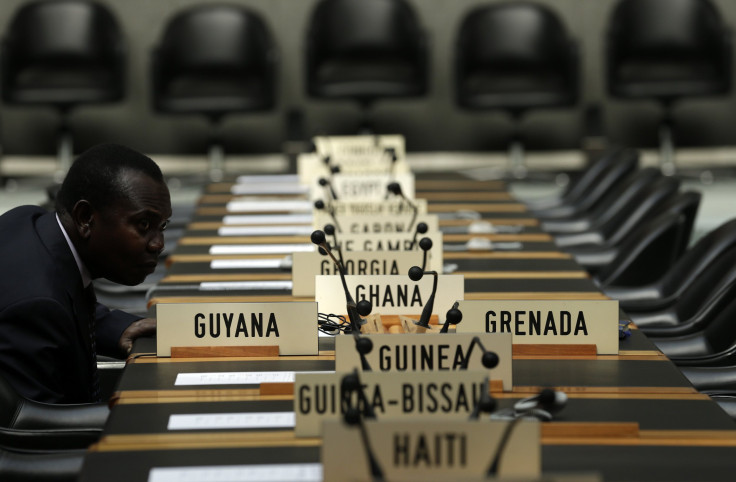9th WTO Bali Ministerial Conference 2013: A Final Attempt To Salvage The Doha Round Of World-Trade Talks

Twelve years ago, negotiations began in Doha, Qatar, to further liberalize trade rules around the world. Twelve years and numerous impasses later, negotiators are preparing to meet on the Indonesian island of Bali in a last-ditch effort to salvage the Doha Round of world trade talks and the credibility of the World Trade Organization.
Next Tuesday, trade ministers from WTO member states will begin three days of meetings in Bali for the ninth WTO Ministerial Conference -- the fifth Ministerial Conference since the launch of the Doha Round in 2001.
The biannual conference isn’t even about concluding the Doha Round. The aim is for ministers to sign a less ambitious deal, or Doha-lite. Such a deal would add $1 trillion to the world economy and create 21 million jobs, 18 million of them in developing countries, according to the International Chamber of Commerce.
U.S. Trade Representative Michael Froman, in his keynote address at the WTO Public Forum 2013 on Oct. 1, lamented that “in its nearly 20-year history, the WTO has never once produced a new, fully multilateral trade agreement.”
A successful outcome at Bali, while short of the full Doha package, will also give the WTO a much-needed boost of confidence as a trade negotiating forum. This is especially true at a time when countries are pushing forward with ambitious new regional deals including a Trans Pacific Partnership and a Trans-Atlantic Trade and Investment Partnership, outside the WTO framework.
No Deal In Sight
Unfortunately, next week’s summit is likely to go down in history as another huge disappointment.
On Tuesday, the WTO's 159 member economies held a crunch meeting in Geneva to decide whether they had made sufficient headway to put a formal draft document before the Dec. 3-6 summit. WTO Chief Roberto Azevedo later told reporters that the talks on the WTO’s first-ever worldwide trade reform hit an impasse and it is now up to trade ministers at their Bali summit in December to resolve differences.
“The reality is that we have proved that we can't cross the final yard here in Geneva. The process here is over," Azevedo told reporters, the AFP reports. "This is not about shortness of time. If we had a few more weeks, we would still not make it.”
Taco Stoppels, a counselor at the Dutch mission to the WTO, tweeted about the result.
#TF meeting at #WTO is over now. #WTODGAZEVEDO closed meeting by simply thanking everyone. Text is not ready.
- Taco Stoppels (@TacoStoppels) November 25, 2013Azevedo's spokesman Keith Rockwell said he would be working the telephones feverishly to try to bring ministers to agreement before next month’s summit, Reuters reports.
Unresolved issues include an Indian crop stockpiling plan that is exempt from WTO subsidy rules and a challenge to the U.S. economic embargo on Cuba. Turkey also has concerns about new rules on transit, while there is Central American resistance to demands to stop using customs brokers to handle trade.
Global Trade Data
The volume of world trade rose in September, and surveys suggest that it should rise further over the next few months. However, the growth of international trade is still lackluster compared to the growth of output, according to Andrew Kenningham at Capital Economics.
The volume of world exports rose by 0.8 percent month-on-month in September, according to the latest data published by the CPB Netherlands Bureau for Economic Policy Analysis. The year-on-year growth rate during the latest three-month period also increased slightly, but it remains low by historical standards.
Export performance varied widely. Exports from emerging economies rose in September whereas those from the U.S. fell. Meanwhile, exports from the euro zone have not yet recovered their 2008 level and those from Japan are still substantially below their pre-crisis level, notwithstanding the fall in the value of the yen over the past year.
© Copyright IBTimes 2024. All rights reserved.












